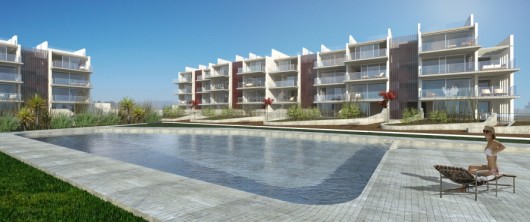Last week, Spain approved tax increases which could see VAT payable on new property purchases increasing as of 1 January 2013 from the current 4% super reduced rate to 10%, unless the Spanish Government makes an exception.
Tax reduction on new property was made effective in August 2011, when the government of José Luis Rodríguez Zapatero decided to cut VAT from 8 percent to 4 percent on all new properties sold until December 31, with the aim of helping clear excess stock of unsold houses.
Economists have already calculated that those purchasing now could save themseleves a considerabe amount of money in the long run if they buy before the end of the year, particularly for those intending to take out a mortgage in order to buy a property.
For example, it’s been calculated that an individual purchasing a house for an average mortgage of €99,600, with an interest rate payable of 4% and a duration of 21yrs, could actually save themselves €23,469 during the lifetime of the loan by making a purchase before the new rulesz come into play.
Those purchasing a new property for €180,000 outright would save themselves €10,800 in VAT by buying before 2013.
VAT increase only creates a slight rise in the overall cost of a product.
There are concerns that a VAT hike in Spain could affect the amount of money being spent there by tourists.
General VAT on items such as clothing and cigarettes would be raised by three percent from 18 to 21 percent whilst VAT for the leisure industry which covers food and drink at restaurants and accommodation will increase from eight percent to 10 percent.
The increase will apply from August and won’t affect those who have purchased a package holiday to the tourist destination, but those who book flights and hotels separately may notice a difference. Those travelling to Spain may also find it more expensive than usual upon arrival.
However, the tax increase was less than some expected and may come as a blessing in improving the economy of a country that has definitely suffered at the hands of the economic downturn. A stay in a hotel that would have cost £700 initially would now cost around £714 so the difference is not overly extreme. Similarly, if a person spent £50 on clothing, the new VAT means that this would cost around £51.50 which is again not a dramatic increase.
However, the hike in VAT was criticised by the Spanish Tourism Commission. In a statement it said: “The tourism sector regrets the government’s lack of sensitivity for a strategic sector that is key to kick-starting and accelerating Spain’s economic recovery.”
On the other hand, Managing Director of the On Holiday Group, Bill Allen told Travel Weekly: “Two per cent is a much more sensible approach. There was a similar increase in Canaries a few weeks back and there the hotels absorbed the increase – we’d expect the same to happen now in Spain.
“No increase would have been better but overall this is a victory for common sense.”
Spain has already seen the rate of tourism bettered this year with official figures highlighting that 19 million foreign holidaymakers went there between January and the end of May, highlighting a 2.4 percent increase on 2011.
Although an increase in tax is a grumble for anyone, Brits have the advantage that the pound is stronger than the Euro so the effect won’t be as obvious for British tourists. Hopefully the tax increase will push Spain’s economy in the right direction and help the country to get on to road to recovery.




